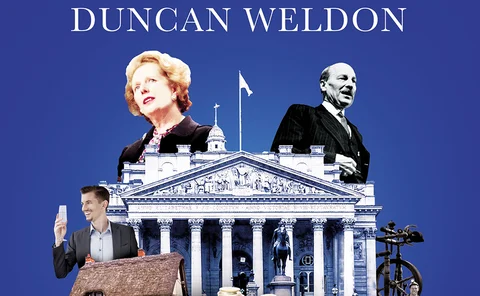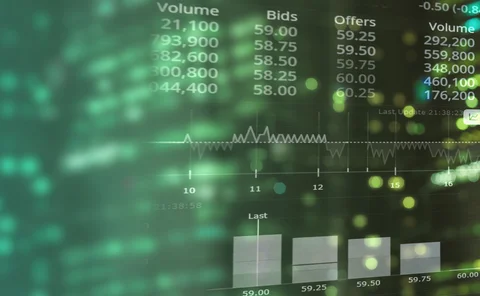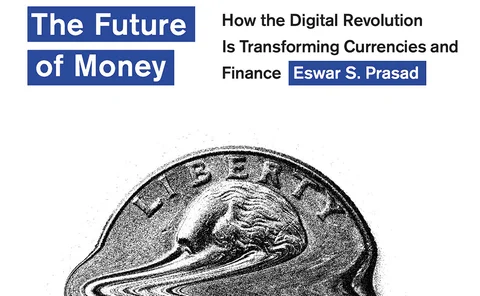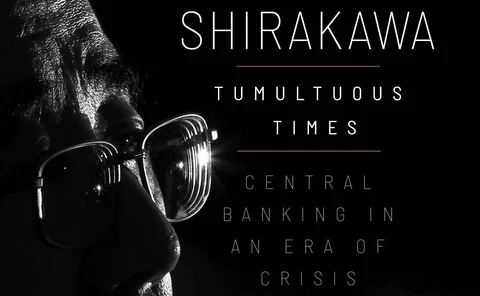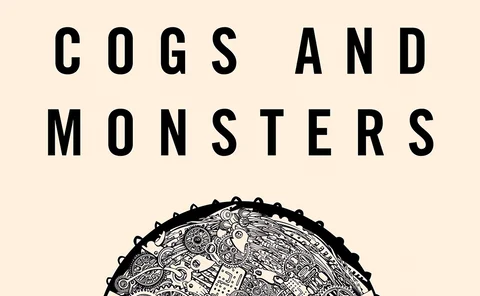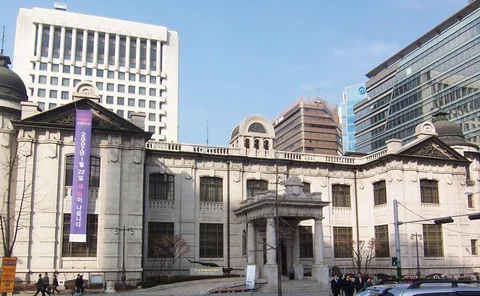Central Banking Journal
Three QE controversies, two theories
BNP Paribas Asset Management‘s head of macro research, Richard Barwell, explores three controversies surrounding quantitative easing through the lens of the quantities and signals theories, and considers whether all asset purchase programmes should be…
CBDC and bank intermediation in the eurozone
An assessment of the impact different ‘digital euro’ designs related to remuneration and usage limits could have on the banking system, including during times of stress*
The Central Banking Awards 2022 virtual ceremony
View the trophy presentations and acceptance comments from the winners of the ninth annual Central Banking Awards
Book notes: Two hundred years of muddling through, by Duncan Weldon
Insights into UK economic history offer lessons for today’s policy-makers
Sovereign green bonds: the reserve portfolio’s panacea?
German, Swedish, Danish and UK debt managers speak to Victor Mendez-Barreira about ‘twin bonds’ and other efforts to solve green bond liquidity concerns
What is the right size for a central bank board?
There is greater consensus for smaller boards in theory than in practice
Peter Nicholl on rebuilding Bosnia’s central bank
The former RBNZ deputy governor speaks with Dan Hardie about how he tackled financial instability in the aftermath of a war
Book notes: A full-value ruble, by Kristy Ironside
Soviet experience shows MMT worked, only with far more challenges and downsides than promoters envisioned
IMF gains bigger budget to handle economic ‘inflection point’
Decade of flat budgets hampered efforts to tackle “profound” macroeconomic shift, fund says
Is this the end for ECB QE?
High inflation makes it increasingly difficult for the central bank to justify asset purchases across the eurozone, despite rising fragmentation risks
Book notes: The future of money, by Eswar S Prasad
Prasad’s book is the best on the topic so far, providing the most complete description of issues and factors that will shape the future of money
Does Switzerland need an SWF?
A sovereign wealth fund could adopt longer-term strategies, invest in less liquid assets and increase exposures to riskier assets such as equities, potentially boosting returns
Book notes: Tumultuous times, by Masaaki Shirakawa
A rare and refreshingly honest description of a governorship that spanned a series of crises
The international effort to manage NBFI risks: where do we stand?
The Covid-19 shock demonstrated more needs to be done to address stability risks posed by the NBFI sector. Maurizio Trapanese details progress made during the Italian G20 presidency as well as outstanding macro-prudential issues
Is a bond market crisis imminent?
Central banks need careful action and a good dose of luck if they are to avoid financial instability
Book notes: Cogs and monsters, by Diane Coyle
Coyle brings much-needed nuance to the debate over the shortcomings of economics
Fractures in the monetary system
Seizure of Bank of Russia assets likely to have long-term implications for international system
Book notes: Mission economy, by Mariana Mazzucato
Although worth reading, the book doesn’t offer as many answers as it could when it comes to reimagining the capitalist system
Central Banking Awards 2022: the winners in full
Recipients of the 2022 awards include Stanley Fischer, the Bank of Korea, Mario Marcel and many more
Central bank of the year: Bank of Korea
South Korea’s central bank was the first developed-world central bank to tighten policy to address inflationary risks
Lifetime achievement: Stanley Fischer
Fischer has had a profound impact on monetary economics and central banking during his prolific career
Transparency: Czech National Bank
New monetary policy report, and publication of attributed minutes and economic model raise the bar for disclosure
Reserve manager: Central Bank of the UAE
The Middle Eastern institution approved a new investment policy, allowing it to diversify into new asset classes and, for the first time, allocate part of its portfolio to external managers
Economics in central banking: Wenxin Du
Du’s work clarifies the dollar’s role as a barometer of global markets, and explores the myriad implications for financial stability



